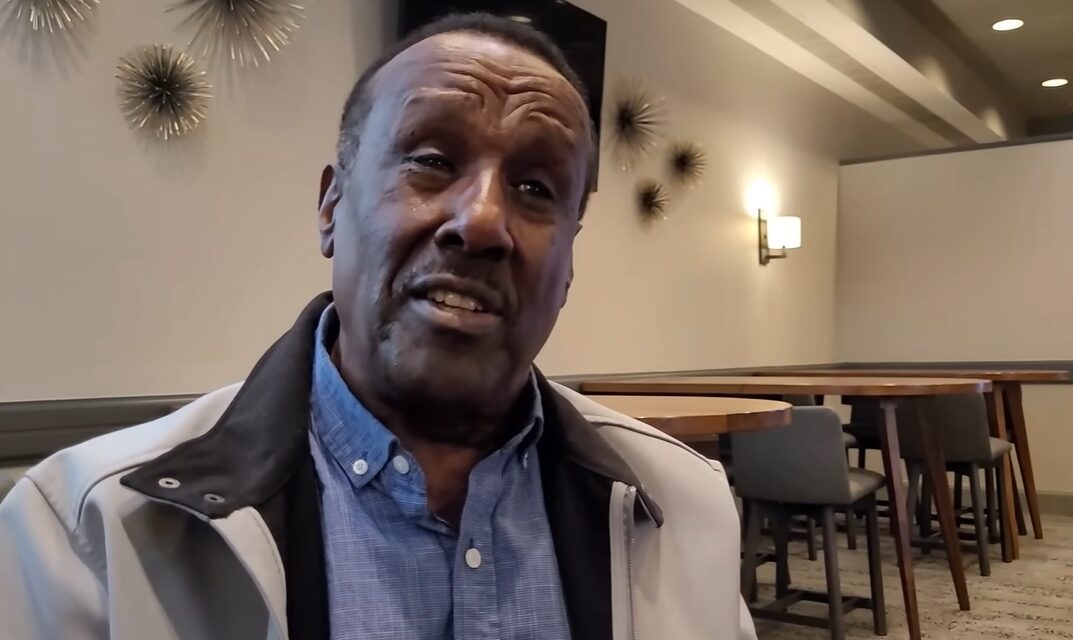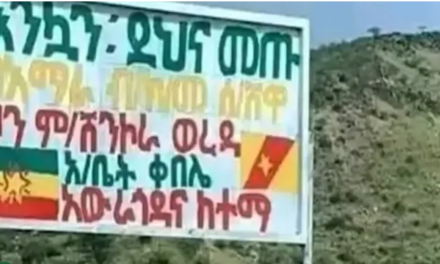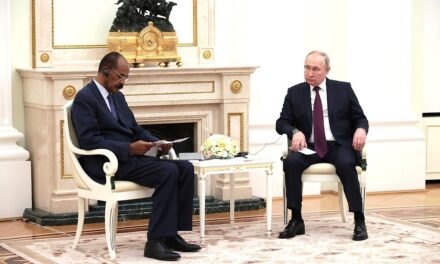By Abebe Gellaw
WASHINGTON DC (EVN) — The Biden Administration has been urged to review its foreign policy toward Ethiopia as the conflict in the Amhara region has been escalating and the government has failed to crush the Fano movement militarily.
Maj. Dawit Woldegiorgis, Head of the Foreign Relations of the Amhara Popular Front (APF), which is led by award-winning journalist Eskinder Nega, said US foreign policy needs rethinking as it is “either naive or based on complete ignorance of the realities on the ground.”
Speaking in an exclusive interview with Canadian journalist and author Jeff Pearce, Woldegiorgis provided his perspective on the intricacies of the Ethiopian conflict and its broader implications on the subregion. “American policymakers in the State Department don’t see the bigger picture in the Horn of Africa,” he said.
Woldegiorgis further emphasized that the Horn of Africa is “the most complex security zone in Africa and probably in the world.” He warned that if the international community fails to grasp the gravity of the situation, it could easily explode into a wider conflict in the subregion.
Pearce probed deeper, inquiring about the potential implications if Fano, the Amhara militia gaining momentum, were to gain control of Addis Ababa, the nation’s capital, and how they would treat other ethnic groups. Woldegiorgis responded by outlining Fano’s mission, centered on safeguarding the integrity of the Amhara people and preventing genocide.
Woldegiorgis emphasized the grassroots nature of Fano, saying that Fano is not necessarily a very organized military institution. “It’s 100 the people and the farmers…Nobody in this world, nobody who knows Ethiopia can refute this; it is a reality.” He expressed his confidence that Fano would persevere as it was the people’s war, and their goal was to help the Amharas organize themselves and eventually take over Addis Ababa.
He expressed optimism that even if Fano emerged victorious, there would likely be no reprisals against other ethnic groups.
“The strategic importance of the Red Sea should be considered because Ethiopia is in the Red Sea [region],” Woldegiorgis pointed out. “Ethiopia means so many things. So all these interests certainly will have their own agendas and will end up…It will be complex.”
Woldegiorgis, an advocate for the Amhara people, highlighted the recent developments in the crisis. He pointed out reprisal is not part of the Amhara cultural norms and values. He noted that Fano has captured thousands of Oromo prisoners, a stark contrast to allegations of violence and mass killings by other groups.
He stated, “Even in the face of adversaries from other ethnic groups, their treatment of prisoners, he claimed, was marked by humanity.”
He assured that there would be no vindictiveness. He believes that the majority of Oromos don’t believe in the false narratives they have been told about Amharas. “They want peace and they want to live with Amharas alongside…The majority of Oromos don’t want to fight with Amharas,” he said.
He stressed the importance of Western interests in the region and argued that any future government in Ethiopia would likely align with Western values and democracy, making it crucial to preserve Western interests.
Woldegiorgis underscored the urgency of a peaceful resolution to the Ethiopian conflict, urging the international community to act swiftly and decisively. He argued that a post-conflict government in Ethiopia would likely be Western-aligned. He argued that supporting a destructive regime would be detrimental not only to Ethiopia but to the entire region.
As the Fano movement deepens and gains wider ground, the international community, led by the United States, faces a challenging task in navigating the complex and multifaceted nature of the conflict. The Fano movement was born out of decades of grievances by the Amhara people who faced mass atrocities, displacement, discrimination, and persecution under the TPLF and the Abiy regimes.
In response to concerns about Fano’s portrayal in the Western press, Dawit Woldegiorgis responded, “No, it’s absolutely different. Fano is standing for the people of Amhara.” He elaborated on the dire situation Amharas faced. Woldegiorgis further noted, “There has been genocide in Ethiopia and continues to be, genocide in Ethiopia because I know what genocide means. It’s not just using the word or the phrase; it is literally what has been going on, a genocide in Ethiopia. [It is] systematic.”
He went on to explain that Fano’s mission was to prevent genocide and protect the integrity and rights of Ethiopians, describing it as the noblest cause.
He further pointed out that Fano was rooted in defending the people of Amhara and safeguarding their rights amidst mass displacement and violence, and he stressed the importance of understanding the true nature and mission of Fano as they strive to address the critical issues facing the Amhara people and the broader Ethiopian population.
Amhara activists complain that despite the unwavering support by the Amhara people for Abiy Ahmed’s reform agenda and during the regime’s darkest hours as the TPLF was almost on the verge of taking over state power, it betrayed them and declared war against Amhara patriots, known widely as Fano.








